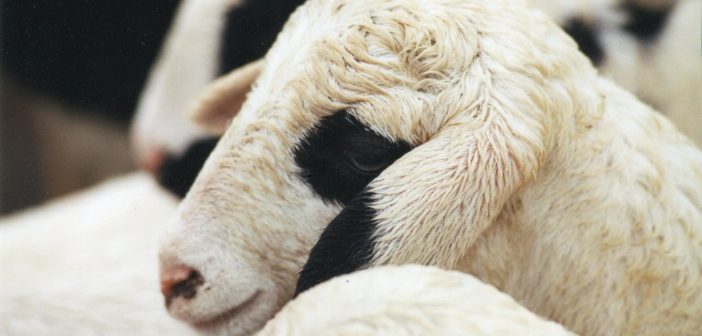The natural order suggests that animals are not meant to be in cages, and that they are not meant to be tied down by ropes or human expectations. India is full of animals, from the humble street dog to the majestic Asian elephant, and while a number of them are still trying to avoid capture, most have already been herded into the captivity of commercial coops, rural pens, and circus tents. Many are being trafficked for money, exported in the name of economic growth, and many are dying untimely deaths, shackled to their fate by human negligence.
Recently, the government of India’s Maharashtra state and the Commerce Ministry took on a project to export livestock, in the form of roughly one lakh [Ed. Note: lakh, a numeric term used in India, is equal to 100,000.] sheep and goats, from Nagpur to Sharjah, United Arab Emirates. The plan involved cramming them into freight flights and shipping them off, seemingly without consideration for the fact that they are living, breathing organisms.
Animal lovers, NGOs, and organizations rooted in ahimsa, a principle of nonviolence and compassion towards all living things, all rose up in Nagpur, Mumbai and Delhi in protest. After many meetings, demonstrations, letter writing campaigns, and much public pressure, the live export of one lakh goats and sheep, thankfully, did not go through. The animal protection community, with the religious organization Jain Samaj in the forefront, came together in a volley of volunteers, activists, and organizations. With over 2,000 petition signatures in a day, hundreds of phone calls to the chief minister’s office, and several protests to stop these ‘flights of slaughter,’ we have showcased our strength and ability to work together as a cohesive community for the protection of animals in India.
“While we ourselves are the living graves of murdered beasts, how can we expect any ideal conditions on this earth?”
― George Bernard Shaw“The greatness of a nation and its moral progress can be judged by the way its animals are treated.”
— Mahatma Gandhi
However, while the animals in Nagpur breathe another day, hundreds of other animals are being rounded up somewhere else in the country, branded and marked to be shipped off at the slightest notice.
Animal advocates in India have a great fight in front of them, especially because the animal protection community in this country is small. We must appreciate the strength and power that this impromptu protest brought into the animal protection community, giving newfound vigor to those who have been working to improve the living conditions of animals.
The ability to react to urgent and fragile situations, despite our different approaches, is what makes us a strong movement. We must work cohesively, even if we have different viewpoints or preferred tactics, and move towards results that reflect our common goals. If we all come together to work in tandem, our diversity allows us to look at situations with different perspectives, and use those perspectives to change the world.
The world has the potential to be a better place, and we only need a bit of coaxing to bring out the best in ourselves. Our partnerships and collaborations can transform that ‘best’ into a comprehensive, compassionate conclusion: an end to injustice against animals.
After all, that’s what the Federation of Indian Animal Protection Organizations is all about.
Featured image: Goat herd near Srikakulam village, India. Image credit: Kim Bartlett – Animal People, Inc.





